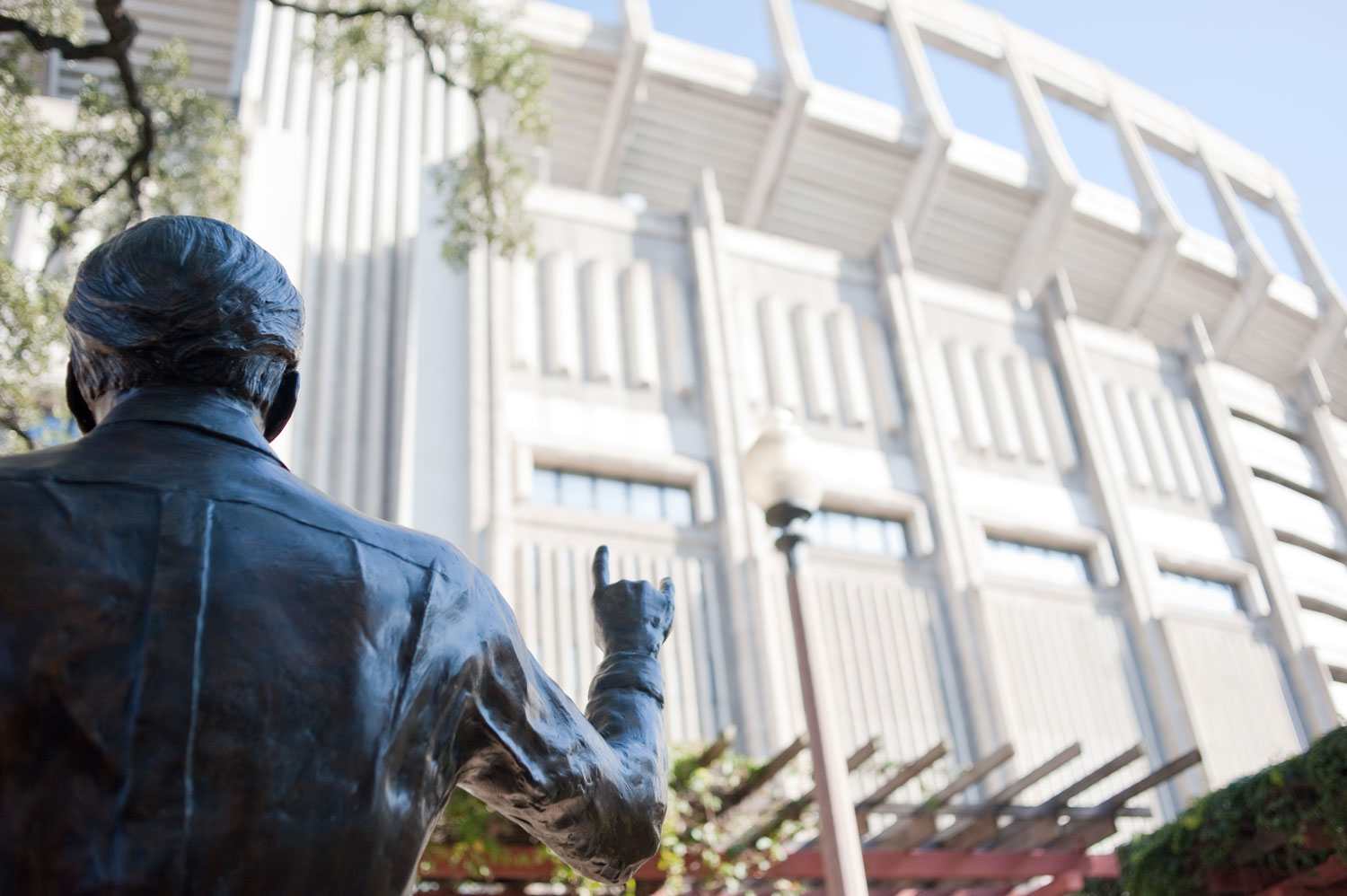Update on Senate Bill 822
Posted August 2, 2018

Senate Bill 822 (Estes) recently passed the full Senate and was sent to the House for referral to a committee. This bill would transfer property gifted to UT-Austin to benefit students to another state agency without compensation. This proposal would also deny UT-Austin the opportunity to generate income from the land to help students, all while the state drastically reduces financial support for the university.
We understand the fate of the Lions Municipal Golf Course is an important issue for some Longhorns.
No matter how you feel about Lions Municipal Golf Course, it is critical for the community to understand that the proposal within SB 822 is the wrong way to handle the situation. This is a bad bill that will hurt UT-Austin and set a precedent that could harm all public colleges and universities in Texas.
Now that this bill has moved to the House, it is important for alumni to let their state representatives know that this bill should not move forward.
Here are some points to use when communicating with legislators on this important issue:
- It is inappropriate to seize land from a public university without compensation.
- Passage of SB 822 would take away a valuable resource that generates funds to help keep tuition affordable to students, and provide support that fuels the Texas economy.
- SB 822 strips a charitable gift from an institution that relies increasingly on philanthropy to operate.
- SB 822 has the potential to erode the confidence of donors who want to know that their intention when giving to UT-Austin will be fulfilled in perpetuity.
Background
The Brackenridge Tract was donated by Colonel Brackenridge to the University of Texas in 1910. The Brackenridge gift is a charitable trust created specifically to advance and promote education at UT-Austin. UT owns the land as trustee, subject to the charitable nature of the trust, and may only use or dispose of the land in furtherance of the charitable purpose.
Since 1926, the university has leased part of that land for a public golf course. The course was among the first in the American South to become fully integrated in the 1950s and, last year, was added on the National Register of Historic Places for that important role in civil rights history.
The City of Austin currently pays well-below market value for the land and that lease expires in 2019. UT and city officials are currently in negotiations, exploring several options, including a lease renewal at a fair price or possible land swaps.
SB 822 would, instead, transfer the golf course property to the Texas Parks and Wildlife Department and require that agency to maintain it as a golf course in perpetuity. It would not compensate UT for that seizure. It would also derail the city and university’s ongoing efforts to reach a mutually-beneficial agreement through the negotiations.